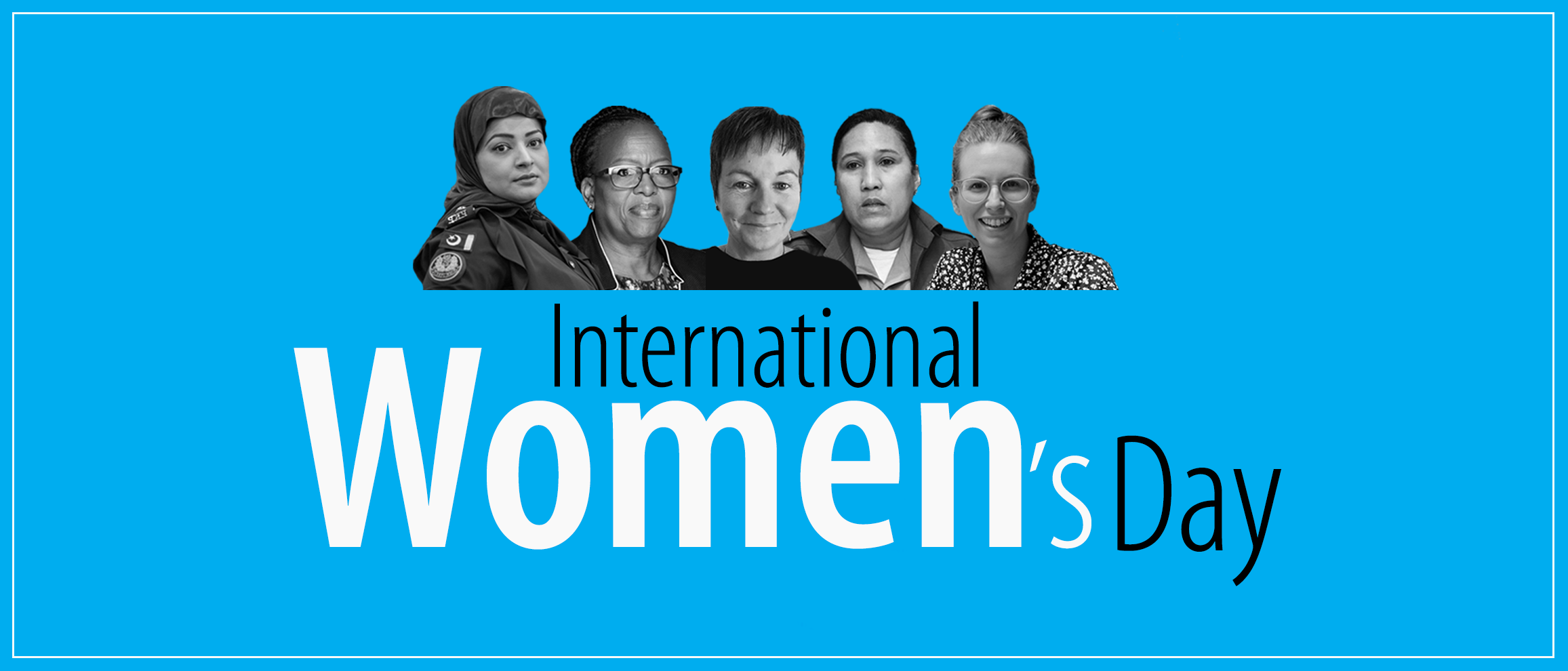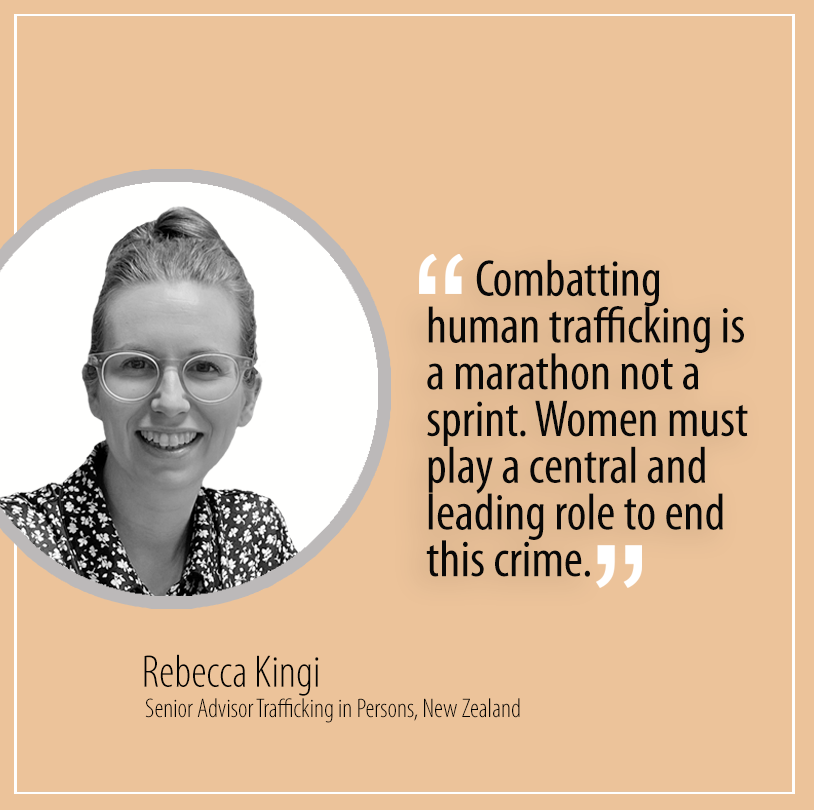
Vienna, (Austria), 8 March 2023 – Women are powerful and efficient, often playing a key role in the fight against human trafficking and migrant smuggling around the world.
At the same time, and despite advances in gender equality, women continue to face obstacles when it comes to having a voice in the local, regional, and international sphere.
On the occasion of International Women’s Day, we invited five women to reflect on their work in the criminal justice and law enforcement sector. Below, they share their experiences and critical perspectives.

Pakistan, the fifth most populous country in the world, still sees a significant underrepresentation of women in leadership roles. This is due to numerous barriers to women's participation in the political and public sphere, such as social norms, gender bias, and limited access to education and employment opportunities.
Shahla Qureshi is a firm supporter of gender equality and empowerment, she keeps raising the profile of women’s rights and calling for greater enforcement of laws, so that violence against women is finally widely recognized as a problem in Pakistani society.
She is currently serving as Assistant Inspector General of Police Gender Crime and Human Rights in Pakistan.
Led by Shahla, the Women Police Network trains women on how to approach and support victims of human trafficking. She is also trying to sensitize people and provide justice at the grassroots level by providing free legal aid, shelter, housing, and establishing telephone helplines.

In the past, New Zealand has been considered too isolated to be a serious destination of human trafficking, but the reality is different.
Proud to support her country, Rebecca Kingi works as Senior Advisor on Trafficking in Persons for the New Zealand Government, where she brings her expertise to eradicating this crime.
Rebecca firmly believes that women need to have central and leadership roles in the anti-trafficking sector.
In March 2021, New Zealand launched a new Plan of Action against forced labour, people trafficking and slavery. Rebecca and her team coordinate, monitor and evaluate its implementation.
She has also shared her country’s experience at the UNODC Working Groups on Trafficking in Persons and Smuggling of Migrants, as well as at the Conference of the Parties to the United Nations Convention against Transnational Organized Crime.

As a woman survivor of human trafficking, Jane is using her voice loudly to raise awareness of this terrible crime.
She is founder of a task force that aims to train medical students and healthcare professionals to identify and give guidance on what to do in the face of suspected victims of the crime.
She also speaks internationally on the subject and motivates policymakers, non-governmental organizations, and others to stand up and not be silent and unite their voices to take faster action.
She is also the author of “Red Alert”, a book raising awareness of forced prostitution and human trafficking.

Coronel Francia Hernández is one of the few officers who has remained for many years uninterruptedly in the same position.
She is the Commander of the Human Trafficking and Migrant Smuggling Department of the National Police of the Dominican Republic, where she has supported the role of female officers and has been instrumental in improving their skills to combat these crimes.
The Dominican Republic is a well-known destination for human trafficking for the purpose of sexual exploitation. Most of the victims are women, that is why it’s very important that women like Francia work to combat the crime.

Being a public prosecutor is not an easy job, but Innocentia Mthandazo Nyoni has proven to have what it takes to get the job done.
She works as Deputy Prosecutor-General in the Office of the Prosecutor-General of Namibia. In 2015, she prosecuted the first human trafficking case in the country.
Namibia has come a long way since then, the level of understanding of the crime among different stakeholders has improved tremendously.
She has also been involved in the process of drafting the legislation on human trafficking and works to ensure that the psychosocial needs of the victims are addressed.